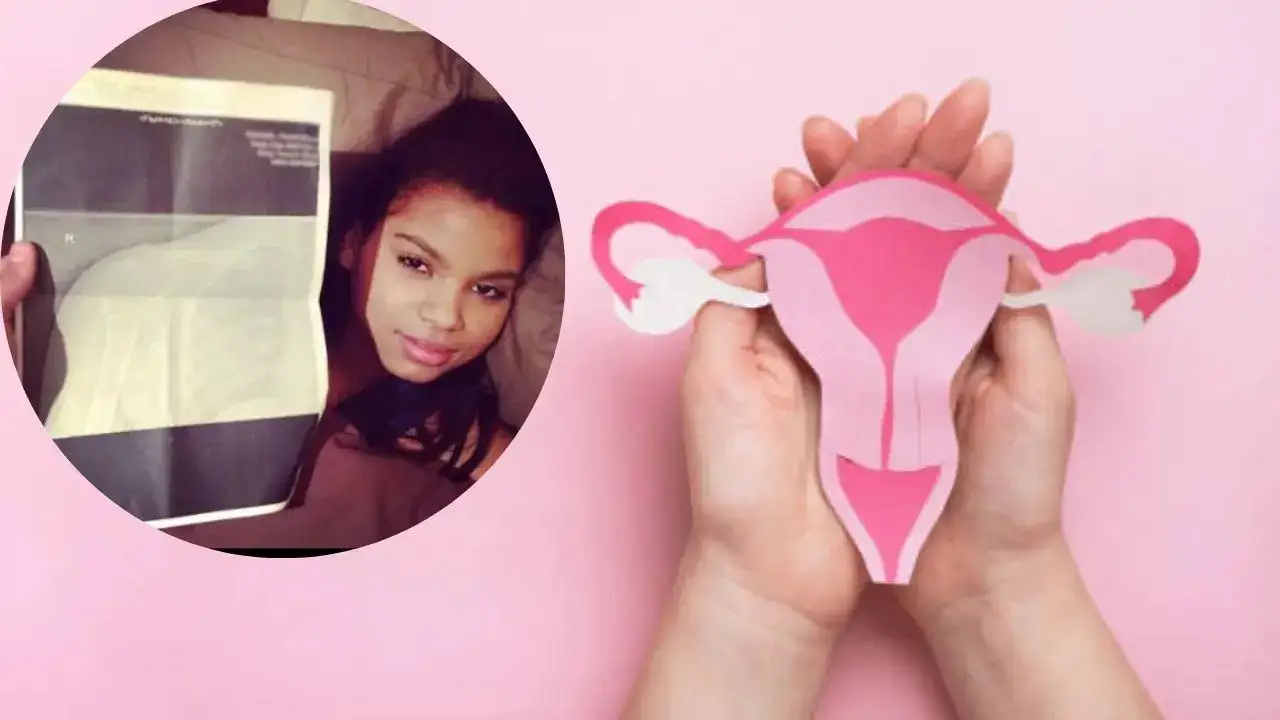
Frankie Parker was diagnosed with premature ovarian insufficiency or POI after not getting her period at 15 (Pic: SWNS/iStock)
Frankie Parker, who is now 30 years old, went through menopause—a natural cessation of menstruation and fertility in women—during her teenage years due to a rare disorder. Frankie says she was 15 when her periods stopped, and she had to live with a “skeleton of a 75-year-old,” fearing she could break bones while doing simple tasks.
Frankie was diagnosed with premature ovarian insufficiency, or POI, after not getting her period. Thereafter, she suffered from frequent hot flashes, mood swings, foggy memory, and extremely low estrogen levels. All the symptoms led her to have osteopenia—a condition characterised by lower-than-normal bone density but not severe enough to be considered osteoporosis - and meant she would break “multiple bones” by doing simple tasks.
Now, Frankie and her partner are attempting to get IVF treatment to get pregnant, which she has been told will not be successful, and so the couple is considering adoption.
Frankie says she still suffers from the occasional brain fog and hot flushes and has to use HRT patches to ease them. “I suffered with most menopause symptoms and lived for years with the embarrassment of my diagnosis. I just wanted to fit in and be like other girls my age. At the time, I never understood what was happening to my body, so I never spoke about it,” she told The Sun. “I was at a roller disco event when I fell back and my shoulder shattered. The doctors said it was a complex break and that I had the skeleton of a 75-year-old,” she added.
Having never had a period, Frankie was diagnosed with POI after blood tests were done. As a teenager, she frequently broke bones, including her shoulder and foot in two places. Later on, she was also diagnosed with type 1 diabetes, an underactive thyroid, and chronic kidney disease.
However, her doctors often blamed symptoms on other ailments. “Because of my age and other disorders, I was frequently palmed off by doctors. I remember one nurse who said, ‘omg, your partner is a saint for staying with you for not having children,” she said.
What is primary ovarian insufficiency?
Experts say POI is a condition that occurs when your ovaries fail earlier than average. Ovaries are small glands located on both sides of your uterus that produce and release eggs during ovulation and make important hormones for menstruation, pregnancy, and other bodily functions.
While the usual age for menopause is around 45-50 years, in some women it can happen abruptly, and they suddenly stop having a regular menstrual period. But, for others, a diagnosis of POI comes after months or years of irregular periods.
How does POI affect your body?
POI leads to low estrogen levels, which have side effects similar to those that occur with menopause, like:
- Hot flashes
- Decreased sex drive
- Mood changes
- Irregular periods
- Increased risk for osteoporosis and heart disease
- Infertility
What causes POI?
Doctors say in many cases, they have no idea what causes the condition, but according to research, up to one-third of cases may have a hereditary component. Some other causes include:
- Autoimmune disorders like Addison's disease, rheumatoid arthritis, and thyroid disease
-
Cancer treatments like chemotherapy or radiation
- Genetic disorders, which include Turner syndrome
- Hysterectomy
- Infections like mumps and HIV
- Prolonged exposure to chemicals, pesticides, cigarette smoke, and other toxins
Get Latest News Live on Times Now along with Breaking News and Top Headlines from Health and around the world.
